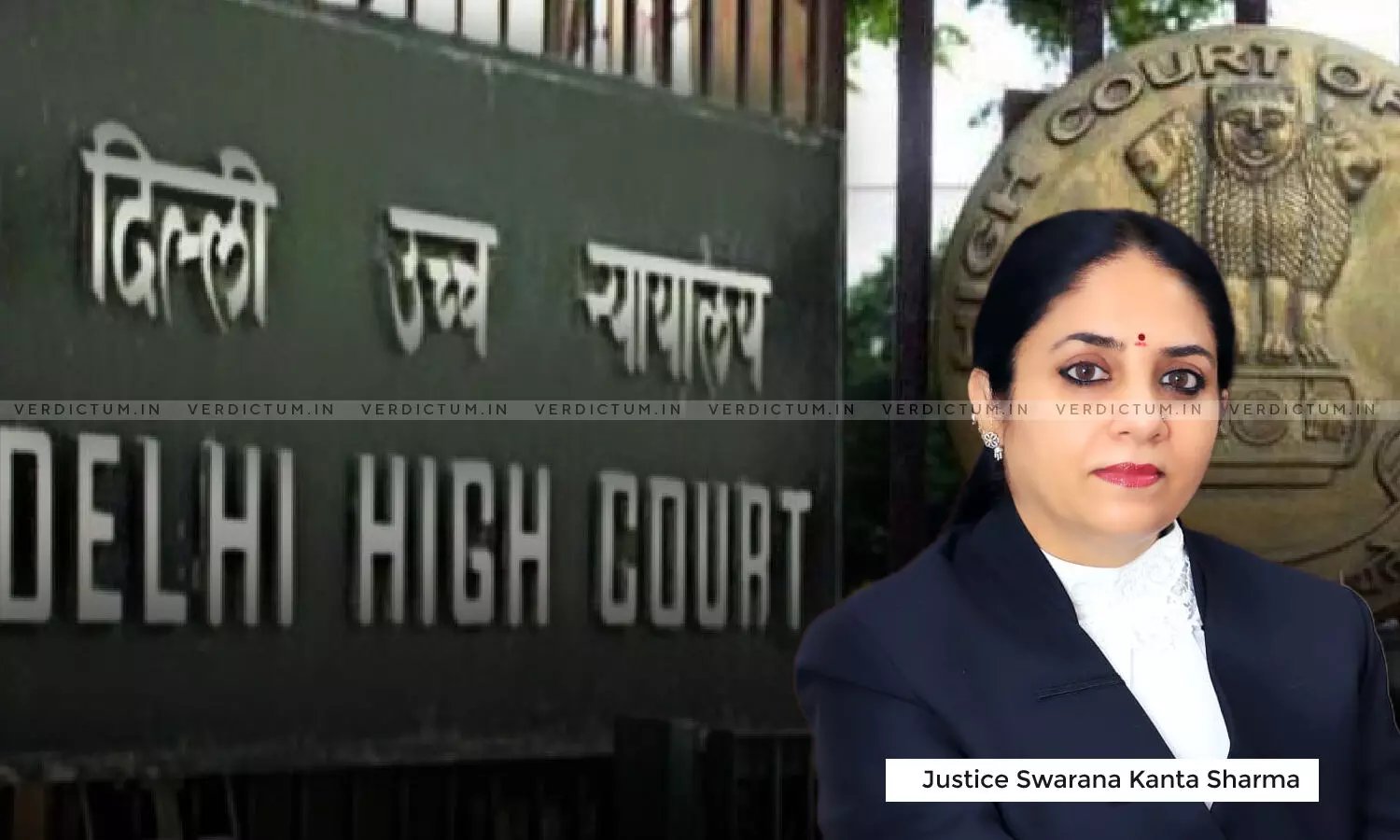
Judges Too Have Right To Be Heard: Delhi HC Lays Down Guidelines For Dealing With Transfer Applications
 |
|The Delhi High Court on Tuesday issued a set of guidelines to guide Principal District and Sessions Judges in handling transfer applications.
The Court passed the guidelines while dealing with a specific case where the Principal District and Sessions Judge of Rouse Avenue Court had transferred the Bhushan steel money laundering case following an alleged remark by the judge handling the case.
The Bench of Justice Swarana Kanta Sharma underscored the importance of judicial discretion and the principles of fairness in adjudicating such matters.
The Court said that Judges, by virtue of their duties, are tasked with upholding the principles of fairness and impartiality while adjudicating cases before them and authoring judgments. However, when the conduct of a judge itself comes into question, the principle of audi alteram partem must be equally applied in such cases to the judges.
"The application of audi alteram partem in cases involving judges would ensure that the judiciary remains accountable, while also protecting the rights of judges to defend their conduct and decisions. If a judge is denied the opportunity to respond to allegations levelled against him, it would lead to a culture of levelling unchecked and unverified accusations against any judge," the Court
The Court stated that Judges and the judicial process possess an inherent dignity that must be preserved and allowing allegations to be made on the basis of mere overheard conversations between a judge and his court staff and transferring cases from one criminal court to another on such premise will undermine this dignity and threaten the integrity of the entire judiciary. "Such apprehensions cannot be entertained in absence of any iota of evidence. Further, in this Court’s opinion, the relationship between the staff and the judge has to be treated as confidential and it should not become a subject of scrutiny by the litigants or the lawyers. It is an area that demands respect and privacy," the Court said.
The Bench said that even if Special Judge in question did utter the words as alleged against him, it does not reflect any real apprehension of bias towards the respondent and any unfair favouring to the prosecuting agency as it is not known as to in what context the alleged comment was passed and in relation to which case.
"A stray general comment by a judge to one of his staff members who is not a participant in the decision making process, and has no interest in the outcome of any case, cannot become a ground to infer that the learned judge was saying something in context of the similar case so as to invite allegations of bias. There is nothing on record to reveal or suggest any bias due to desire of the learned Special Judge which favoured the prosecution as there are only two parties before the judge, infecting/influencing his views to the extent of adversely denying justice to the applicant," the Court said.
It opined that mere suspicion of bias when there was no foundational context, reason or facts, cannot amount to reasonable apprehension of likelihood of bias on the part of the Special Judge. The Bench further opined that there were no sufficient reasons to transfer the matter from the concerned learned Special Judge to another Judge, without calling for comments from the Trial Judge.
"The reputation of a judge is an important aspect of the judiciary's credibility and the public‘s trust in the legal system. The reputation of a judge is one of his most vital assets, painstakingly built over years of dedicated service. It is of utmost importance for a judge to guard this reputation as judges too, like all other individuals, have a right to protect their reputation," the Court observed.
In view of the circumstance, the Court ordered, "This Court is inclined to set aside the impugned order dated 01.05.2024. The matter is remanded back and the learned District and Sessions Judge is directed to decide the transfer petition afresh, after calling for comments from the concerned learned Special Judge and taking into consideration the observations made in the preceding discussion."
While making an endeavour to ensure that the balance of justice and purity is maintained not only towards the parties but also to the judicial fraternity and the community, the Single-Judge Bench laid down the following guidelines that shall be followed by the learned Principal District & Sessions Judges while dealing with transfer applications filed before them:
(i) The comments of the concerned Judge from whom the case is sought to be transferred on ground of bias will be called mandatorily.
(ii) The application will be decided after considering the said comments and in light of principles of real apprehension of bias.
(iii) The other principles regarding the attending circumstances being considered will also be taken into consideration at the time of deciding such applications.
In addition to setting aside the transfer order, the Court directed that its judgment and guidelines on case transfers be disseminated to all Principal District and Sessions Judges in Delhi. Furthermore, the Court instructed the Director (Academics) of the Delhi Judicial Academy to incorporate these guidelines into relevant training programs for Principal District and Sessions Judges.
"Learned Registrar General of this Court is directed to forward a copy of this judgment to all Principal District and Sessions Judges of Delhi. A copy be also forwarded to Director (Academics), Delhi Judicial Academy for taking note of its contents and inclusion in appropriate programme to be held for Principal District & Sessions Judges, Delhi," the Court ordered.
Cause Title: Directorate of Enforcement v. Ajay S. Mittal [Neutral Citation: 2024: DHC: 4419]
Appearance:-
Petitioner: Special Counsel Zoheb Hossain, Advocate Kartik Sabharwal
Respondent: Senior Advocates Sandeep Sethi, Mohit Mathur, Advocates Sanyam Khetarpal, Deepak Goel, Shreya
Click here to read/download the Judgment